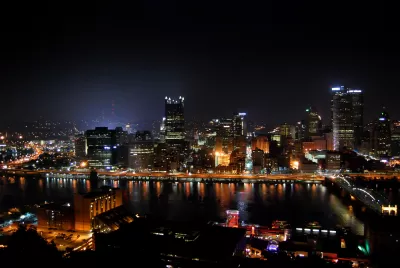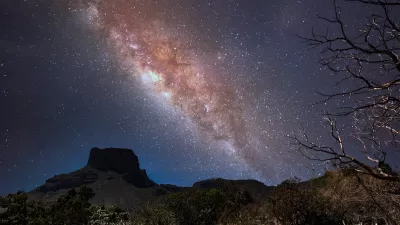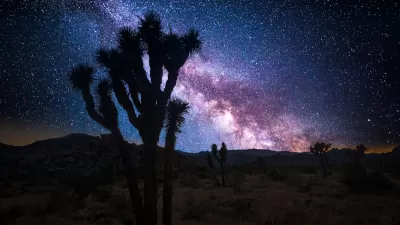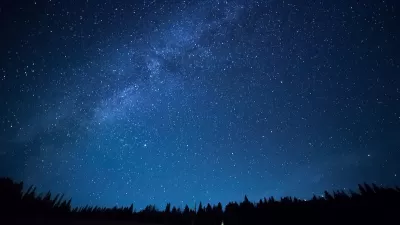As evidence showing the benefits of dark skies builds, Pittsburgh becomes the first eastern American city to enact a dark sky policy.

Pittsburgh became the first city in the eastern U.S. to adopt a 'dark sky' policy, reports Josyana Joshua, " meaning that it will switch to lower wattage LED bulbs and add shades along bridges, roads and other public areas" to reduce light pollution and energy use from public lighting.
Although it joins 34 other 'dark sky' communities that have committed to reduced lighting guidelines, "Pittsburgh will be the first city in the world to follow the International Dark Sky Association’s new values-centered outdoor lighting, which means it will follow the group’s more comprehensive suggestions surrounding wattage and color temperature as well as when and how to keep lights on." Dark sky advocates say light pollution disrupts ecosystems and natural processes that depend on light cues, writes Joshua. "It can also confuse the natural 24 hour day/night cycle for humans — a darker sky has been found to have positive effects on mental health, with stargazing and less blue light playing a part."
Despite concerns about safety, research from England and Wales shows that street lighting reductions did not negatively affect crime or car crash rates. Since Pittsburgh's announcement, other eastern cities and states have pushed forward dark sky initiatives of their own.
FULL STORY: Why Pittsburgh Is Dimming Its Streetlights

Study: Maui’s Plan to Convert Vacation Rentals to Long-Term Housing Could Cause Nearly $1 Billion Economic Loss
The plan would reduce visitor accommodation by 25,% resulting in 1,900 jobs lost.

North Texas Transit Leaders Tout Benefits of TOD for Growing Region
At a summit focused on transit-oriented development, policymakers discussed how North Texas’ expanded light rail system can serve as a tool for economic growth.

Using Old Oil and Gas Wells for Green Energy Storage
Penn State researchers have found that repurposing abandoned oil and gas wells for geothermal-assisted compressed-air energy storage can boost efficiency, reduce environmental risks, and support clean energy and job transitions.

From Blight to Benefit: Early Results From California’s Equitable Cleanup Program
The Equitable Community Revitalization Grant (ECRG) program is reshaping brownfield redevelopment by prioritizing projects in low-income and environmental justice communities, emphasizing equity, transparency, and community benefits.

Planting Relief: Tackling Las Vegas Heat One Tree at a Time
Nevada Plants, a Las Vegas-based nonprofit, is combating the city’s extreme urban heat by giving away trees to residents in underserved neighborhoods, promoting shade, sustainability, and community health.

How Madison’s Tree Planting Efforts Are Growing a Healthier Community
Madison’s annual tree planting initiative is enhancing environmental resilience, public health, and community livability by adding 1,400 carefully selected trees citywide, with strong community and institutional support for urban forestry.
Urban Design for Planners 1: Software Tools
This six-course series explores essential urban design concepts using open source software and equips planners with the tools they need to participate fully in the urban design process.
Planning for Universal Design
Learn the tools for implementing Universal Design in planning regulations.
Ascent Environmental
Borough of Carlisle
Institute for Housing and Urban Development Studies (IHS)
City of Grandview
Harvard GSD Executive Education
Toledo-Lucas County Plan Commissions
Salt Lake City
NYU Wagner Graduate School of Public Service





























